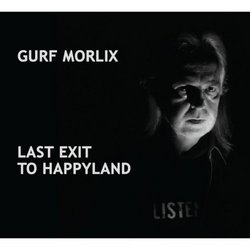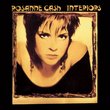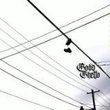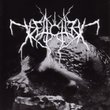CD Details
Synopsis
Product DescriptionTempting as it may be, don't just judge Gurf Morlix by the company he keeps, even if it does provide a fine starting point: eminent musical artists like Lucinda Williams, Ray Wylie Hubbard, Warren Zevon, Ian McLagan, Patty Griffin, Robert Earl Keen, Michael Penn, Buddy Miller, Mary Gauthier, Tom Russell, Jim Lauderdale and Slaid Cleaves, to name but a few. Instead, listen to Last Exit to Happyland, his fifth solo album, and understand why his blue-ribbon associations as a producer, guitarist and multi-instrumentalist have led Morlix to a similar level of excellence as a singer, songwriter and artist in his own right. As critic Henry Cabot Beck notes on Amazon.com, "If anybody is still looking for a candidate to replace Robbie Robertson in The Band, look no further. Morlix can write, sing, produce, and play nearly every instrument (mostly stringed) and has a bottomless (albeit muddy) range of American musical idioms from which to draw." Through more than four decades of professional music endeavors, Morlix has distinguished himself with his innate musicality, exquisite taste, keen creative instincts, and well-honed ear for not only songwriting but also the elements that bring songs to their fullest fruition. And now, on Last Exit to Happyland, "I've found my voice, and my albums just keep getting better and better all the time," Morlix says. "I'm really proud of these songs and this album." The album is a showcase for Morlix's gifts as a musician and producer as well as his finest moment yet as a writer and singer. He plays everything on it but the drums, which are ably handled by Rick Richards, who has manned the kit on many of Morlix's productions in recent years. Icing the cake are Patty Griffin, Barbara K (of Timbuk 3 fame) and rising Texas singing sensation Ruthie Foster, who contribute harmony vocals to a number of tracks. As with all that Morlix has produced and played over the years, every note and creative touch ultimately serves the songs. And his trademark grit, soulfulness and authenticity suffuse the album, representing the "muddy," as Morlix calls the junction where the varied strains of American roots music meet and mingle, at its truest and finest. Last Exit to Happyland is peopled with characters "headed to reckoning day," as Morlix sings in the propulsive opener, "One More Second." The swampy bomp of "Walkin' to New Orleans" finds a Crescent City resident heading home into the deadly wind and rain of Hurricane Katrina, while the haunting country-blues "Crossroads" reveals new wrinkles in Robert Johnson's fateful meeting with the devil. Whether it's longtime lovers at the "End of the Line," a traveler on a "Hard Road" or an outcast who laments "I Got Nothin'," Morlix captures their emotional essence. "Drums From New Orleans" takes listeners back to the radio signals that inspired Morlix as a youngster, and he pays tribute to his late friend and musical cohort Blaze Foley also the subject of Williams' "Drunken Angel" on "Music You Mighta Made," which echoes Foley's musical and songwriting style. On "She's a River," a beloved woman becomes a wonder of nature. And the stark "Voice of Midnight" examines life's final moments in a perfect grace note to a collection of songs that compares favorably to any other created by the many artists who have called on Morlix to help them make the most of the their music.
Similar CDs
| |
CD Reviews
+1/2 -- Quietly intense, rough-voiced, sweet-sounding Americ hyperbolium | Earth, USA | 02/17/2009 (4 out of 5 stars) "Gurf Morlix has produced many of the who's who of Americana, including Lucinda Williams, Robert Earl Keen, and Ray Wylie Hubbard. He's added guitar to works by Buddy Miller, Jim Lauderdale, Peter Case and others, and crafted a low-key solo career starting with 2000's Toad of Titicaca. Morlix sings with a bit of Buddy Miller's moan and a bit of Tom Waits' grit, but his confessional exhalations are more the parched tone of a dusty back road than the worn sidewalks of the bowery. He sings here with Patty Griffin, Barbara K and Ruthie Foster, but most impressively, he sings with his own instrumental accompaniment, as he plays everything but the drums (which, as on 2004's Cut `n Shoot, are handled perfectly by Rick Richards).
In less capable hands, a one-man-studio-band can sounds manufactured, with the artist's secondary instruments slaved in tempo and mood to their primary axe. But Morlix approaches each instrument as a native, insuring each instrument's sound has individual depth and character as it's blended into an organic band sound. If you didn't know this was the product of overdubbing, you'd be inclined to think it was recorded live - such is the interplay between the "players." The arrangements and production show the sort of sensitivity to Morlix's songs that could easily be sacrificed in a self-contained project. It's not unusual for a writer to hear a song's musical concept in his or her head, but it's much rarer for the writer to successfully play and produce that sound into reality.
The album opens with a one-time killer's path from armament to remorseful condemnation, freeze-framing the fatal bullet's path, examining it in lyrical detail and tagging it with the conscience-nagging chorus "one more second, was all it woulda took / another thought, a closer look / the thunder cracked, and blood ran cold / one more second, mighta saved my soul." Morlix's facility for description stocks "She's a River" with a dozen metaphors, and the allusive path of "Hard Road" is set upon with the memorable introduction "I set out on my own, look out here I come / Whatever there might be, I was gonna get me some / Pure gun powder, I was ready to explode / The fuse was lit, I was out on the hard road." That same road may be the one Morlix resolutely walks into the teeth of Hurricane Katrina in "Walkin' to New Orleans," and the Crescent City's blues is heard in the restless soul, low-twang and wailing backing vocal of "Drums of New Orleans."
The edge in Morlix's voice works just as well against lighter backings, such as the Shel Silverstein flavored "Music You Mighta Made" and the closing duet with Patty Griffin, "Voice of Midnight." His songs are shot through with fatalism, but their tunefulness and Morlix's inventive production keeps this from devolving into complete darkness. This is a beautifully crafted album from a thoughtful singer-songwriter whose producer and musicians (all of whom happen to be Morlix himself) add perfect musical color to his limited, but deeply soulful, vocal range. 4-1/2 stars, if allowed fractional ratings. [©2009 hyperbolium dot com]"
|


 Track Listings (10) - Disc #1
Track Listings (10) - Disc #1



